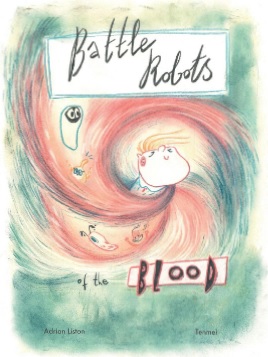When should I apply for a fellowship?
 Sunday, July 28, 2019 at 10:22AM
Sunday, July 28, 2019 at 10:22AM To develop an academic career in research you need to develop two sides of your CV - one is your publication record and the other is a record of prizes, fellowships and grants. Publications are hard. Years of research and a brutal revision process make accumulating a publication record slow and painful. Prizes, fellowships and grants are, in principle, easier. You write up a proposal and submit. Often you can even submit the same proposal in multiple places. It is very rare that prizes are awarded without you applying for it, so sending out a lot of applications just makes sense.
For poster prizes, departmental awards, travel grants, the equation is quite simple: apply for them. There are a lot of small prizes that are usually under-subscribed, they can earn you a little money and these small prizes build up to greater things. For fellowships, on the other hand, I have started to lean in the other direction. I used to suggest that all post-docs apply for a fellowship - if successful, it is a nice income and a highlight in your CV, and if unsuccessful, well... it is good practice. Now, however, I tend to discourage fellowship applications very early on in the career. Newly graduated PhD students are often very keen to apply for fellowships, and there are so many opportunities that you can easily spend a year applying for one after the other.
The question that you need to ask yourself is whether applying for fellowships is a a good investment of time. A successful fellowship application normally merges a great idea (the science) and a proven record to deliver that idea (most importantly, your publication record). A lot of post-docs make the mistake of applying for fellowships too early, before their publication record is ready to support it. It is easy to think that there is no cost to doing so, but applying for fellowships takes a non-trivial amount of time. As a scientist you always need to weigh up the opportunity cost: time spent on fellowships is time not spent on experiments. There are times when applying for a fellowship is sensible, and other times when you are better off investing all of your energy in experiments (building that publication record for future fellowships). Here are a few factors that you can consider:
Factors that should encourage you to apply for fellowships:
- You are a senior post-doc looking to become independent
- The fellowship allows you to take a key mobility step (eg, Marie Curie to return to Europe)
- You just published a highlight paper
- Your PI says you need a fellowship to stay in the lab (but consider moving labs instead)
- You don't expect your CV to improve in the next year
- You will not be eligible next year
Factors that should discourage you from applying for fellowships:
- Your PI has a grant that covers the full period of your project
- You have a top story cooking (it deserves all your attention!)
- Your publication record is relatively thin, without any highlight papers (but watch out for being excessively self-critical! A neutral faculty member is a useful independent judge)
- You expect your CV to improve in the next year
My suggestion: rather than automatically write a fellowship, because that is what post-docs do, carefully consider the factors above, consult with faculty and then rationally decide where to invest your effort. Make sure that you don't talk yourself out of applying just for reasons of self-confidence, but also don't be afraid to concentrate on the science this year instead of applying, to put yourself in a better position to apply next year.
 science careers
science careers 




Reader Comments